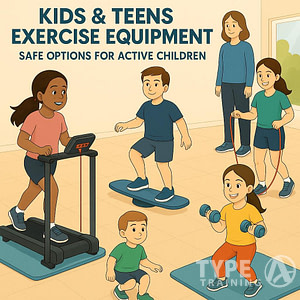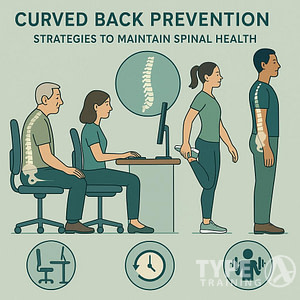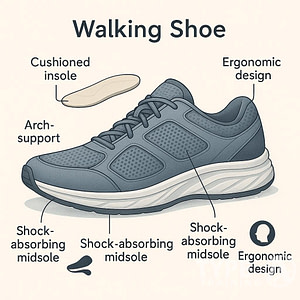Sleep is a universal necessity, cutting across cultures and countries, but the methods to achieve a restful night can vary greatly around the globe.
While you might be familiar with counting sheep or avoiding screens before bedtime, there are a multitude of sleep hacks from various parts of the world that could enhance your slumber.
These practices range from dietary supplements to unique bedding, each with their own cultural heritage and scientific reasoning.
Popular posts:
Understanding different sleep techniques can be beneficial in finding the best solution for your own rest.
Some cultures rely on herbal remedies like ashwagandha to reduce stress and anxiety, while others find peace in the type of mattress or pillow they use, such as thin tatami mats in Japan.
By exploring various sleep hacks from across the globe, you may discover new methods to help you fall asleep faster and improve the quality of your rest.
Experimenting with these international sleep hacks provides an opportunity to take control of your sleep routine.
Whether it involves adopting the Slovakian approach that has been linked to the world’s best sleep quality or incorporating siestas like some South and Central American nations, there’s a wealth of global wisdom to tap into.
Your journey to better sleep might just need a touch of worldly insight.
Understanding Sleep and Its Importance
Before diving into sleep hacks from various corners of the globe, it’s crucial to grasp the science behind sleep and why it plays an indispensable role in your overall health.
The Science of Sleep
Sleep is not merely a state of rest but a complex biological process essential for your body’s restoration and function.
The sleep cycles consist of multiple stages: four NREM (non-rapid eye movement) stages followed by REM (rapid eye movement) sleep.
During these cycles, your body undergoes repair and consolidation of memories, which are critical for maintaining your cognitive and physical health.
Your body’s internal clock, or circadian rhythm, regulates your sleep-wake patterns, aligning them with the day-night cycle.
Benefits of Quality Sleep
Getting a good night’s quality of sleep contributes to various health benefits.
It enhances your mental health by improving concentration and mood. Sleep also bolsters your immune system, making you less susceptible to illnesses.
Furthermore, restful sleep can aid in weight management and reduce the risk of chronic conditions such as heart disease and diabetes.
Sleep Disorders and Health Risks
On the flip side, lack of quality sleep can lead to significant health risks.
Sleep disorders, including insomnia and sleep apnea, can diminish overall sleep quality and lead to daytime fatigue, impaired judgment, and heightened anxiety or depression.
Chronic sleep deprivation has been linked to increased risks of obesity, cardiovascular disease, and worsened mental health.
It’s vital to recognize these problems and seek appropriate treatment to maintain your health and well-being.
Global Sleep Practices Explained
image credit: https://www.visualcapitalist.com/visualizing-worlds-sleeping-habits/
In your quest for a better night’s sleep, you might find inspiration from various global sleeping practices. Each culture has developed unique approaches to rest that could be the key to improving your own sleep quality.
Japan’s Shikibuton and Inemuri
Japan is known for its compact living spaces and efficient use of resources, which extends to their sleeping arrangements.
Traditional shikibuton mattresses are thin and easily foldable, allowing for a multipurpose use of space. The practice of inemuri, or napping in public, reflects a society that values alertness and productivity, indicating that a quick rest is acceptable to regain one’s energy.
China’s Traditional Siesta and Foot Soak
In China, a short afternoon siesta aligns with Traditional Chinese Medicine beliefs about energy flow and organ rest.
In addition, many Chinese use a warm foot soak before bed to improve circulation and promote relaxation, which may help decrease sleep latency and lead to better overall sleep quality.
India’s Ayurvedic Approach to Sleep
Ayurveda, the traditional system of medicine in India, offers a holistic approach to sleep.
Herbal remedies, such as ashwagandha, play a role in an Ayurvedic lifestyle, along with specific dietary and behavioral guidelines aimed at improving sleep.
Scandinavian Sleep Under Nature’s Watch
In Scandinavia, there is a strong emphasis on connecting with nature, which influences their sleep habits.
This includes sleeping in cool, well-ventilated rooms and using natural materials in bedding—to create an environment that’s conducive to restful sleep.
Naps and Siestas in Mediterranean Cultures
Taking a nap or siesta after lunch is a common practice in many Mediterranean countries.
This midday break helps to recharge the body and is often built into the cultural schedule, reflecting an acknowledgement of the natural post-lunch dip in energy levels.
Australian and UK Sleep Innovation
Both Australia and the UK are at the forefront of sleep technology and the concept of clean sleep, which emphasizes the importance of a sleeping environment free from allergens and distractions.
Research and investment in sleep innovation in these countries contribute to an increased awareness of the importance of quality sleep.
Bedroom Environment Optimization
To achieve optimal sleep, your bedroom environment should serve as a tranquil sanctuary designed for rest. From the mattress you choose to the very atmosphere you cultivate, each element plays a pivotal role in guiding you to a peaceful slumber.
Choosing the Right Mattress
When selecting a mattress, consider materials that offer both comfort and support.
Eco-friendly mattresses made from organic latex, organic wool, or natural fibers not only provide a breathable sleeping surface but also contribute positively to your health and the environment.
A supportive mattress is foundational to a restful night, ensuring your spine is aligned and your body well-rested.
The Influence of Pillows and Beddings
The quality of your pillows and bedding can significantly affect your sleep.
Opt for pillows that maintain the natural curve of your neck, and choose bedding made of natural materials like cotton or wool, which are gentle on the skin and help regulate body temperature.
Wash your bedding regularly to remove allergens and maintain a hygienic sleep space.
Creating a Comforting Atmosphere
Finally, establish a comforting atmosphere conducive to your bedtime routine.
Soft lighting, peaceful colors, and the absence of clutter can greatly impact your ability to relax.
Incorporate elements like soothing scents or a lavender spray on your bedding to aid in relaxation and signal to your body that it’s time to wind down for sleep.
Diet and Nutrition’s Role in Sleep
image credit: https://paulstokes.com.au/sleep-vs-nutrition-how-diet-affects-your-sleep-quality/
When considering your sleep quality, your diet plays a pivotal role. Certain foods and nutrients can act as natural sleep aids, helping you relax and improve the duration and quality of your sleep.
Tryptophan and Melatonin in Foods
Foods rich in tryptophan, an amino acid, facilitate the production of serotonin, a precursor to the sleep hormone melatonin.
Eating foods like turkey, which contains high levels of tryptophan, may promote better sleep.
Additionally, foods containing melatonin, such as cherries and nuts, can directly influence sleep patterns by increasing melatonin levels in the body.
Milk and Oats Before Bed
A traditional nighttime snack of milk and oats may be beneficial for sleep.
Milk is a good source of tryptophan, while oats provide a soothing combination of carbohydrates and melatonin. This combination may support relaxation and a smoother transition to sleep.
In some cultures, beverages like välling, a Scandinavian oat-based drink typically consumed before bed, have long been used to foster better sleep in children and adults alike.
Herbs and Supplements That Promote Sleep
Several herbs and supplements are associated with inducing sleep.
Magnesium, found in foods such as almonds, spinach, and pumpkin seeds, has a natural relaxation effect on the body.
Herbal supplements like valerian root, chamomile, and lavender are traditionally used for their calming properties and may enhance sleep when consumed as teas or extracts.
Relaxation Techniques for Better Sleep
image credit: https://www.verywellmind.com/yoga-for-sleep-benefits-poses-and-how-to-get-started-5209194
Finding peace of mind before bed can greatly enhance your quality of sleep.
Incorporating methods like mindfulness and specific breathing exercises can help reduce stress and anxiety, leading to a more restful night.
Mindfulness and Meditation
Mindfulness is the practice of being present and fully engaged with the current moment.
Meditation often incorporates mindfulness by guiding you to focus on your breath or a particular thought, clearing the mind of clutter and worry.
This not only aids in reducing stress but can also make it easier for you to fall asleep.
Begin with short, 5-minute sessions and gradually increase your meditation time as you become more comfortable with the practice.
Breathing Exercises and Aromatherapy
Breathing exercises are a simple yet effective way to calm both the mind and body.
Techniques such as the 4-7-8 method—where you inhale for 4 seconds, hold for 7, and exhale for 8—can help in reducing anxiety.
Pairing these exercises with aromatherapy, particularly with essential oils like lavender or rose, enhances the calming effect, potentially improving sleep quality.
Hot Water Therapy and Epsom Salt Baths
Soaking in a hot water bath, especially when combined with Epsom salt, can relax the muscles and ease tension.
Epsom salt has magnesium, which is known to promote relaxation and reduce stress.
Furthermore, the addition of herbs like mugwort might help with sleep quality.
Ensure the water is not too hot and limit your soak to about 20 minutes for the best results.
Unique Sleep Aids from Different Cultures
Discover how people around the globe enhance their sleep quality through cultural traditions and customs.
From the firm support of Japanese futons to the gentle sway of South American hammocks, each practice reflects a deep understanding of sleep’s vital role in well-being.
Futon Mattresses from Japan and Hammocks in South America
Japan is renowned for its use of futon mattresses, which are firm, foldable, and stored away during the day, promoting minimalism and the maintenance of a multi-functional living space.
The Japanese futon mattress encourages good posture and back support while you sleep.
Across the Pacific, in South and Central America, the hammock is not just for relaxation but also serves as a traditional sleep aid.
The gentle rocking motion not only lulls you to sleep but also may promote deeper sleep due to the mimicry of the womb-like experience.
Wool and Cotton Beddings in Scandinavia
In the cool climates of Scandinavia, bedding materials are vital for a restful sleep experience.
Scandinavians often choose wool and cotton beddings, which provide excellent insulation and breathability.
Wool is particularly effective at regulating your body temperature throughout the night, ensuring you stay warm without overheating.
Herbal Remedies and Teas in Asia
Asian cultures have long turned to nature for sleep enhancement, with a specific emphasis on herbs and teas.
Traditional Chinese Medicine incorporates a range of herbal remedies believed to balance qi (life force) for better sleep.
In China, for example, it’s not uncommon to soak your feet in warm water infused with herbs before bedtime to aid relaxation and circulation.
Worry Dolls and the Power of Myth in Guatemala
Guatemala offers a unique and mythical approach to alleviating nighttime stress called worry dolls.
These are tiny, handcrafted dolls that you tell your worries to before placing them under your pillow.
The belief is that the dolls take away your worries while you sleep, offering psychological comfort and a clearing of the mind for a peaceful night’s rest.
Parenting and Sleep: Global Perspectives
image credit: https://thedadpad.co.uk/ask-dadpad/safely-co-sleep-with-baby/
Parenting approaches to sleep vary greatly around the world, influencing not only when but also where babies nap.
From the importance of scheduling to how sleep is integrated with family life, each culture offers unique perspectives on managing sleep for the youngest family members.
Scheduling Babies’ Nap Times
You might find it surprising that in countries like Sweden, it is quite common for babies to nap outside, even in colder weather. This practice is thought to promote better and longer sleep during the day.
Outdoor napping is facilitated by parental leave policies that enable parents to be home during the day.
In contrast, in places where both work and study schedules are more rigid, indoor, structured nap times are the norm.
This often coincides with the school system’s expectations and family routines.
Cultural Attitudes towards Family and Sleep
Attitudes towards family and sleep play a significant role in how sleep is approached.
For example, in many Asian cultures, it’s typical for families to prioritize collective rest, where children may sleep with parents or grandparents in a family bed.
This contrasts with Western preferences for encouraging babies to sleep independently.
The integration of family life and sleep reflects the broader cultural values where communal living and interdependence are often emphasized over individualism.
Addressing Sleep Challenges at Work
In today’s fast-paced work environment, managing sleep is crucial for maintaining high levels of performance and well-being. Here’s how you can tackle sleepiness at work and enhance your productivity.
The Rise of Nap Pods and Rest Areas
Companies are increasingly recognizing the health benefits of power naps and are providing dedicated rest areas for both men and women.
Nap pods offer you a private, quiet space to recharge during the workday. Even a brief rest in a nap pod can boost your alertness and productivity.
Employers find that when workers reduce stress and manage their energy better throughout the day, the overall workplace environment and output improve.
Managing Stress and Sleep for Work-Life Balance
Effective stress management is the key to achieving a healthy work-life balance and ensuring good sleep.
As a doctor might advise, consider practices like mindfulness and deep-breathing exercises during breaks to help control stress levels.
Regularly stepping away from your desk to stretch or walk also promotes well-being and can help you manage the demands of work without compromising your sleep.
Keeping stress in check not only improves your nighttime rest but also enhances your efficacy at work.
Innovative Sleep Technology and Future Trends
Explore the horizon of nighttime rejuvenation where state-of-the-art technology merges with sleep science. You’ll discover a realm where gadgets not only track but also enhance your rest, ensuring you wake up feeling refreshed and ready for the day.
Smart Mattresses and Apps
Smart mattresses now leverage advanced sensors and artificial intelligence to personalize your sleep experience.
These AI-equipped beds can adjust firmness and temperature in response to body movements and sleep stages.
Complementing smart mattresses, an array of apps provide tailored sleep metrics and recommendations to further refine your sleep quality.
- Key Features of Smart Mattresses:
- Adjustable support and temperature
- Sleep stage detection
- Integration with mobile applications
- Benefits of Sleep Apps:
- Detailed sleep analysis
- Personalized sleep coaching
- Connectivity with wearable devices
The Evolution of Sleep Accessories
Wearable technology is evolving to become an indispensable bedside companion.
Light therapy wearables and other devices can now help regulate your body’s sleep cycle, potentially addressing certain medical conditions that disrupt normal sleep patterns.
Innovators in sleep tech are consistently working on accessories that do more than just monitor—they actively contribute to a better night’s sleep.
- Emerging Sleep Accessories Include:
- Wearable light therapy devices
- Sleep monitoring wristbands and rings
- Smart pillows with built-in audio relaxation features
Scientific Advancements in Sleep Studies
Recent sleep studies have begun to untangle the complex interplay between technology and sleep health.
By harnessing big data and machine learning, researchers are gaining new insights into sleep disorders and holistic wellness.
This burgeoning field promises more effective treatments and perhaps even a predictive approach to personal sleep health—a future where science empowers you to preemptively manage your sleep quality before issues arise.
- Highlights of Scientific Study Breakthroughs:
- Analysis of sleep patterns using big data
- Predictive models for sleep disorder prevention
- Connection between wearable tech data and sleep quality improvement
Frequently Asked Questions
The following subsections address common inquiries about sleep optimization, providing clear and actionable advice to enhance your nightly rest.
What are effective sleep hacks to help you fall asleep faster?
To fall asleep faster, consider a dimming your lights before bedtime, which can signal to your body that it’s time to wind down.
Another hack is the use of the “4-7-8” breathing technique, which can help relax your nervous system and make it easier to drift off.
What sleep hygiene practices can improve overall sleep quality?
Improving overall sleep quality can be achieved by maintaining a consistent sleep schedule and creating an environment conducive to rest, such as a cool, dark, and quiet bedroom.
Additionally, limiting screen time before bed can reduce exposure to blue light, which can interfere with the production of melatonin, a hormone that regulates sleep-wake cycles.
What kind of sleeping exercises can facilitate a better night’s sleep?
Sleeping exercises like progressive muscle relaxation can help you achieve a more peaceful state by systematically tensing and relaxing different muscle groups.
Likewise, mindful meditation has been shown to improve sleep by promoting relaxation and reducing stress.
What are the underlying functions of sleep that influence our health?
Sleep plays a critical role in immune function, memory consolidation, and metabolic health.
It is during sleep that the body engages in various processes crucial to brain health, such as the clearance of waste products, and physical health, including cell repair and growth.
How can you achieve deeper sleep and minimize night-time awakenings?
To achieve deeper sleep, you should focus on creating an optimal sleep environment that is free of disturbances.
You should also implement habits that support your circadian rhythm, such as exposure to natural light during the day and avoiding caffeine and large meals before bedtime.
What are proven strategies for people struggling to attain uninterrupted sleep?
For uninterrupted sleep, consider establishing a bedtime routine that includes relaxation techniques. Also, stick to a fixed wake-up time each day.
If you find yourself waking up often during the night, evaluating and adjusting your daytime habits might help in reducing these awakenings.

















